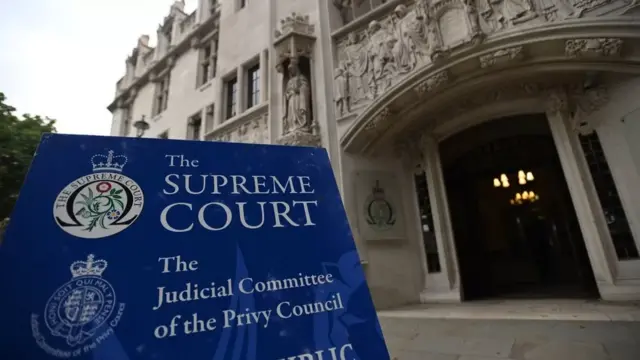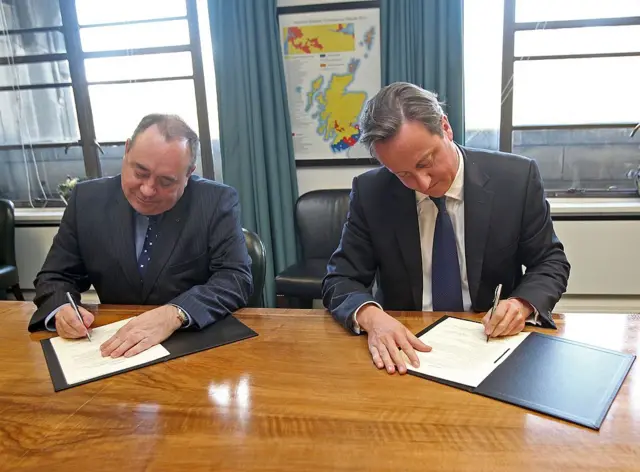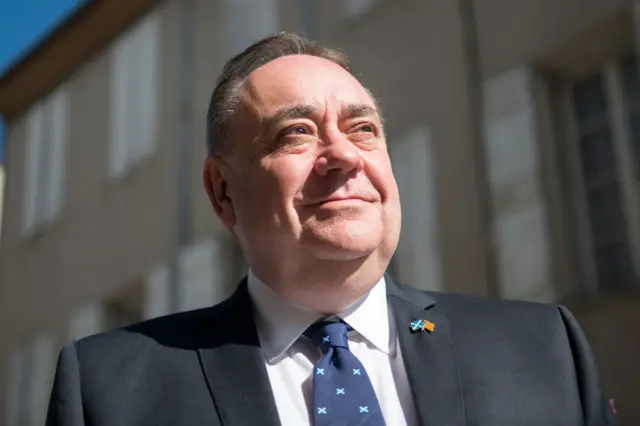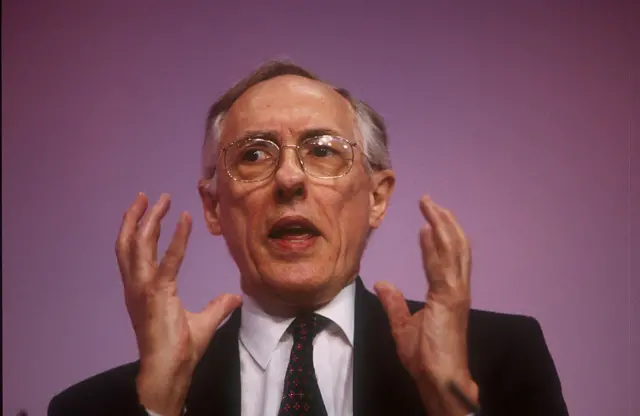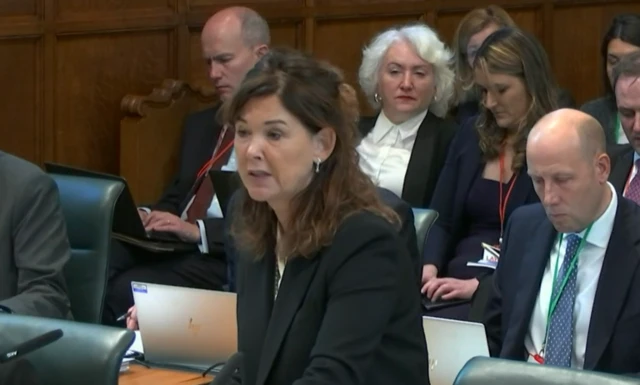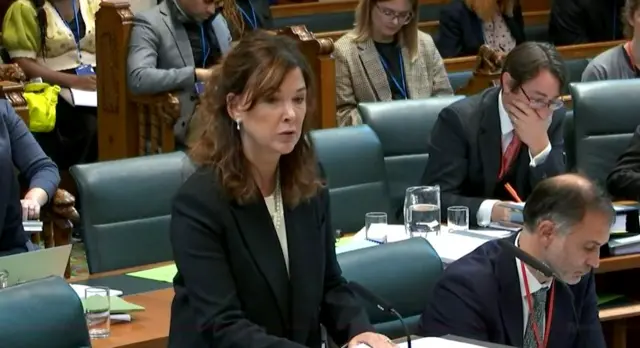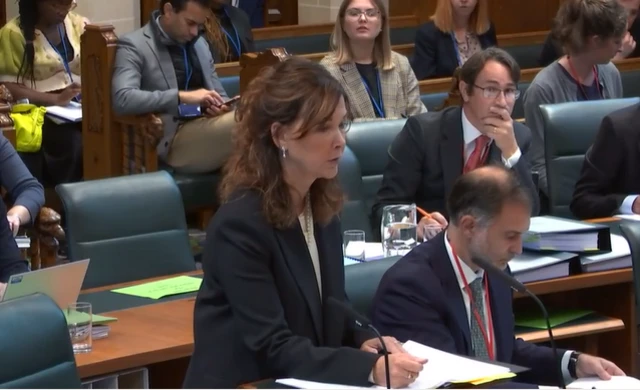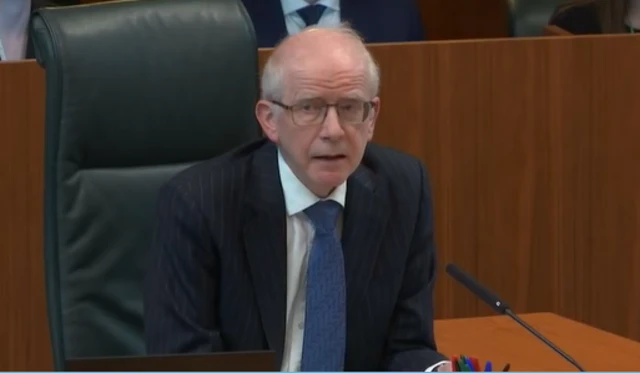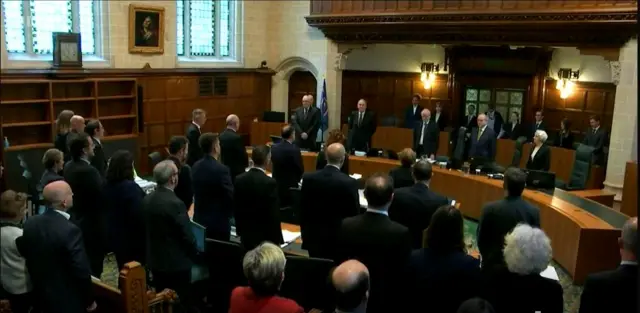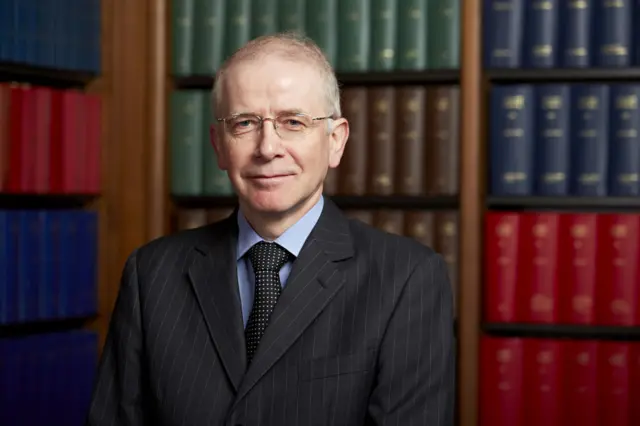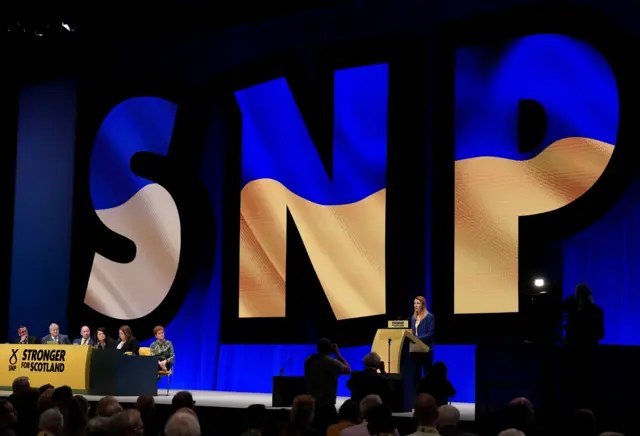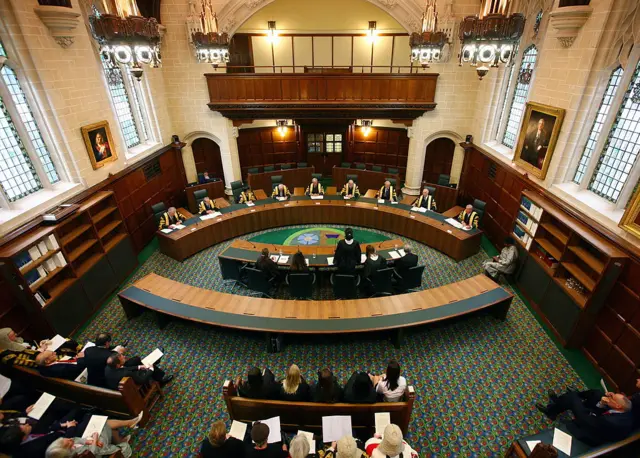Lord advocate takes positive position on jurisdictionpublished at 11:39 BST 11 October 2022
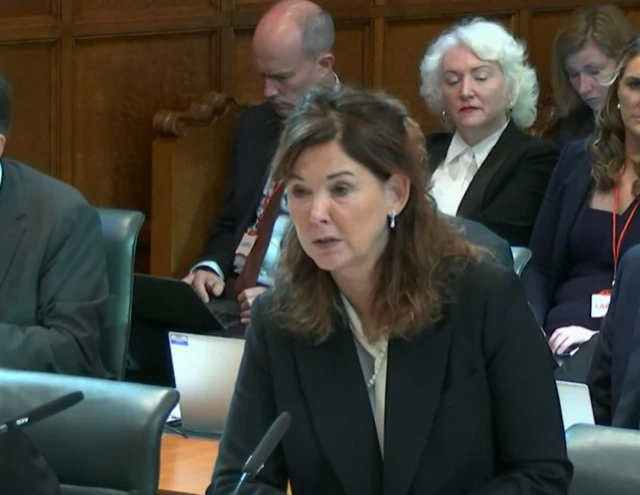
The lord advocate says the bill is complete in all respects material to this reference, although there are minor technical matters that would have to be resolved before the bill was introduced.
Bain explains no more need be said about the draft bill at this stage as it is addressed in the submissions about whether or not the bill is within the Scottish Parliament's legislative competence.
She says: "I seek authoritative guidance from this court and have presented both sides of the argument."
Bain says she does take a positive position on jurisdiction.
This court does properly have jurisdiction and should answer the question referred, she says.
